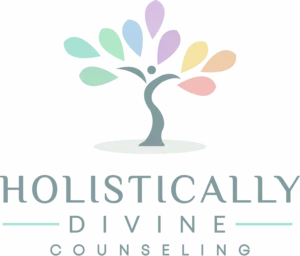A Guide to Finding Culturally Sensitive Therapists [Part 1 of 3]
Author: Sherri S. Wick, MS, LCPC, NCC
A Guide to Finding Culturally Sensitive Therapists [Part 1 of 3]
Author: Sherri S. Wick, MS, LCPC, NCC
Recently, the conversation surrounding mental health has grown in importance and prominence. For BIPOC (Black, Indigenous, and People of Color) communities, addressing mental health is a matter of personal well-being and a crucial step towards healing from the historical and systemic challenges they face. However, finding therapists who understand the unique experiences and cultural needs of BIPOC individuals can be challenging. This guide, part 1 of a 3-part series about empowering mental health, will explore the importance of mental health in our communities, the obstacles in accessing culturally sensitive therapy, and the significance of finding a therapist who fits.
The Importance of Mental Health in BIPOC Communities
Mental health is a fundamental aspect of overall well-being, influencing how individuals think, feel, and act. For BIPOC communities, the impact of mental health extends beyond the individual to the collective experience. Historically, our communities have endured discrimination, marginalization, and intergenerational trauma, all of which take a toll on mental well-being.
Recognizing and addressing mental health challenges within BIPOC communities promotes resilience, self-empowerment, and healing. Individuals and communities can build a stronger foundation to navigate life’s difficulties and celebrate their strengths by prioritizing mental health.
Challenges Faced in Accessing Culturally Sensitive Therapy
While the importance of mental health is widely acknowledged, accessing culturally sensitive therapy remains a significant challenge for many BIPOC individuals. Some of the common obstacles include:
- Representation Gap: There is often a lack of therapists from diverse cultural backgrounds, making it challenging to find someone who understands the nuances of BIPOC experiences.
- Stigma: Mental health stigma can be especially pronounced in some communities, leading to reluctance to seek therapy or treatment.
- Cultural Competence: Some therapists may not have the training or understanding needed to address the specific cultural needs and values of BIPOC clients.
- Financial Barriers: Therapy can be expensive, and not all BIPOC individuals can access adequate mental health coverage or resources.
The Significance of Finding a Therapist Who Fits
Finding a culturally sensitive therapist is not just a matter of convenience; it is crucial for effective therapy and healing. The right therapist can:
- Provide Understanding and Validation: Culturally sensitive therapists can validate the experiences of BIPOC clients, creating a safe space for them to share their struggles and emotions without judgment.
- Tailor Treatment Plans: Therapists who understand the cultural context can tailor treatment plans that resonate with the client’s values and beliefs, promoting a more effective therapeutic process.
- Break Down Stigma and Misconceptions: Culturally sensitive therapists can work to dismantle mental health stigma within the community and educate clients on the benefits of seeking help.
- Empower Clients: Culturally sensitive therapists empower BIPOC clients to embrace their identities, strengths, and cultural heritage, fostering a sense of self-acceptance and resilience.
In the forthcoming parts of this series, we will explore different resources and platforms that can assist BIPOC individuals in finding therapists who understand and value their cultural identities. Prioritizing your mental health is an act of self-love and strength, and seeking help from a culturally sensitive therapist can be a transformative step on the journey to healing and empowerment.


